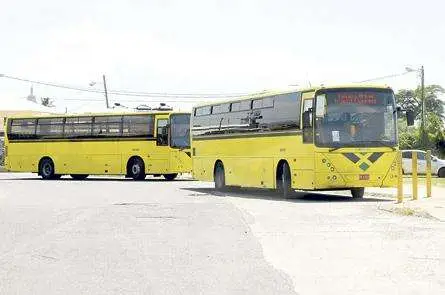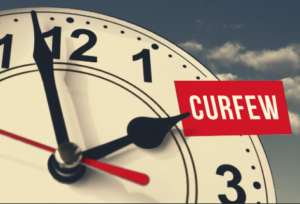
Can the bus fare hike save the JUTC?
TRANSPORT Minister Dr Omar Davies is insisting that the 25 per cent fare increase for the Jamaica Urban Transport Company (JUTC), which takes effect Sunday, should be enough to set the tone for the company’s revival.
In other words, according to Dr Davies, if the Ministry of Finance and Planning is paying the bill for the imported buses used by the JUTC, and providing both fares concessions and tax relief for the company, that should be enough for an economic base for the company to start meeting its obligations.
“I believe that (under those conditions) the fares box should be able to pay the workers, and pay for the repairs and maintenance of the vehicles,” Davies said recently, in answer to questions on how effective he felt the new rates would be in changing the fortunes of the bankrupt State-owned bus company.
But former Transport Minister Mike Henry, who served for approximately four years as minister, believes that Davies is mistaken.
“If they had even increased the current fares by 50 per cent, they would still be losing money and, at the same time, sending up the cost of travelling, especially for rural commuters,” Henry said.
He insists that, as the Office of Utilities Regulation (OUR) had advised in 2010, when the last increase was implemented during Henry’s tenure in office, the only way to make travelling by public transportation in Jamaica cost-effective is to equalise bus fares right across the country.
Henry has been consistent in his position over the years that it is unfair for the entire country to paying to subsidise the JUTC while only a limited section of the island is covered by the buses, and a limited number of children and elderly persons are able to benefit from concessionary fares like the $20 charged by the JUTC.
“Even the IMF was concerned about that,” Henry stated.
He is adamant that while JUTC passengers benefit from the subsidised fare structure in which adult passengers in the Kingston Metropolitan Transport Region pay only $80 per route, adults in rural areas pay as much as $900, and their children pay as much as $700 for routes for which urban children pay only $20.
Henry said that was the point which led him to the position that only an islandwide multi-modal system, which would also include other forms of transportation, including rail, would be the answer to the island’s transportation problems.
According to him, the multi-modal system took into consideration the fact that the JUTC’s service only extended outside the Corporate Area to parts of St Catherine, St Thomas, and Longville Park in Clarendon.
However, the JUTC owns Montego Bay Metro Limited, which was set up in 1997 and which covers the western parishes of St James, Hanover, Westmoreland and Trelawny. That leaves Clarendon, Manchester, Portland, St Ann, St Elizabeth and St Mary without a proper bus service.
“Those parishes are the ones suffering, and my plan was to begin a structural approach that in three to five years would introduce a proper rural/urban bus system, utilising the JUTC’s management skills and with an outreach to the railway and other forms of transportation,” Henry explained.
He said that the final plank in that platform would have been the importation of 200 buses by the previous Government in 2011, just before it lost power. Since then, the current Government has not only dumped his multi-modal plan, but has reduced the number of buses to be imported in exchange for spare parts.
Henry believes that, having dumped his plan, the Government has now placed the country in a position where the JUTC will not be able to overcome its financial problems, and rural passengers, especially students, will be affected by astronomical increases in their transportation costs due to the system of calculating rural fares by mileage.
























